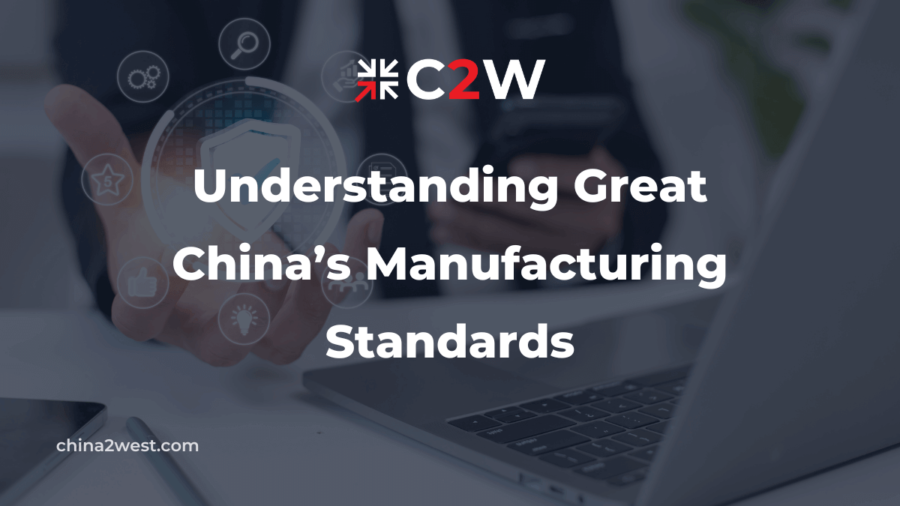In today’s globalized economy, outsourcing manufacturing to China has been a common strategy for businesses seeking cost-effective solutions. However, with the ever-changing dynamics of the global market, it is crucial to assess whether outsourcing to China is still a viable option.
This article will explore the advantages and disadvantages of outsourcing manufacturing to China and provide insights for businesses and individuals considering this approach.
Why Businesses Shouldn’t Rule Out China
Despite the changing landscape of the global market, it is important for businesses not to dismiss China as a manufacturing destination. Here are a few reasons why:
High Cost-Effectiveness
When it comes to cost-effectiveness, outsourcing manufacturing to China remains a highly favorable option. The country’s abundant labor force and efficient production processes contribute to significantly lower manufacturing costs compared to many other regions. B
By leveraging China’s economies of scale, businesses can achieve substantial cost savings and improve their overall efficiency. This cost-effectiveness allows companies to allocate resources to other areas of their operations, such as research and development, marketing, or expanding their product lines.
Established Supply Chain
China has developed a robust and extensive supply chain infrastructure over the years. This infrastructure allows for streamlined logistics, efficient transportation, and reliable sourcing of raw materials and components.
With this well-established supply chain, businesses can benefit from reduced lead times, improved inventory management, and better overall production efficiency.
Skilled Labor Force
China’s continued investments in education and vocational training have resulted in a highly skilled labor force. The country boasts a vast pool of engineers, technicians, and workers with specialized knowledge across various industries.
Access to this skilled talent allows businesses to tap into expertise and innovation, enhancing the quality and efficiency of their manufacturing processes.
Technological Advancements
China has made significant strides in technology and innovation, becoming a global leader in areas such as electronics, telecommunications, and advanced manufacturing.
By partnering with Chinese manufacturers, businesses can leverage these technological advancements to enhance their product offerings and stay competitive in the market.
Expanding Market Opportunities
China boasts the world’s largest consumer market, providing a vast customer base for businesses. By outsourcing manufacturing to China, companies can establish a local presence and tap into the domestic market, capitalizing on the rising purchasing power of Chinese consumers.
Challenges of China Manufacturing
Language and Cultural Considerations
When outsourcing to China, language and cultural differences can pose both challenges and opportunities. Effective communication is crucial for successful collaboration and minimizing misunderstandings.
Businesses need to invest in language training and cultural awareness programs to bridge the gap between teams and foster productive working relationships.
Intellectual Property Concerns
One of the primary concerns when outsourcing to China is protecting intellectual property (IP). China’s history of IP infringement has been a cause for apprehension among businesses.
However, the Chinese government has taken significant steps to strengthen IP protection laws and enforce stricter regulations. Businesses should implement robust strategies, such as patent registration and contractual safeguards, to safeguard their intellectual assets.
Quality Control Challenges
Maintaining quality standards can be a challenge when outsourcing manufacturing to China. Distant supply chains, cultural differences, and varying production practices can lead to inconsistencies in product quality.
Businesses need to establish comprehensive quality control measures, including regular inspections and supplier evaluations, to ensure consistent and satisfactory product outcomes.
Geopolitical Factors
Geopolitical factors, such as trade policies and diplomatic relationships, can significantly impact outsourcing decisions. Tariffs, trade disputes, and political instability can disrupt the flow of goods and introduce uncertainties for businesses outsourcing to China.
It is essential for companies to stay informed about geopolitical developments and assess the potential implications on their outsourcing strategies.
Sheltering from Risks in Outsourced Manufacturing in China
While there are risks associated with manufacturing in any location, businesses can take proactive measures to shelter themselves from potential challenges when operating in China. Here are some strategies to consider:
Intellectual Property Protection
Businesses should prioritize protecting their intellectual property (IP) when manufacturing in China. This can be achieved through measures such as registering patents, trademarks, and copyrights, as well as establishing clear contractual agreements with suppliers to safeguard confidential information.
Quality Control Measures
Implementing stringent quality control measures is essential when manufacturing in China. Regular inspections, quality audits, and performance evaluations can help maintain consistent product quality and ensure that products meet the desired specifications. Building long-term relationships with trusted suppliers and conducting thorough due diligence can also contribute to better quality control outcomes.
Diversification of Suppliers
To mitigate supply chain risks, businesses should consider diversifying their supplier base. Relying on a single supplier increases vulnerability to disruptions. By identifying and partnering with multiple suppliers in different regions within China, businesses can distribute their production capabilities and minimize the impact of any unforeseen circumstances.
Strong Communication and Collaboration
Effective communication and collaboration between businesses and their manufacturing partners in China are crucial for successful outcomes. Regular communication, clear expectations, and a collaborative mindset foster stronger relationships and ensure that both parties are aligned in terms of goals, timelines, and quality standards.
Stay Informed and Agile
Stay up-to-date with the evolving regulations and compliance requirements in China. This includes understanding labor laws, environmental regulations, product safety standards, and import/export restrictions. By complying with the applicable regulations, businesses can avoid legal issues and maintain a positive reputation.
Monitor geopolitical dynamics and anticipate potential disruptions that could affect the sourcing of raw materials, transportation, or customs procedures. By staying informed, businesses can adapt their supply chain strategies to mitigate risks and ensure continuity.
Outsourcing manufacturing to China still remains a viable option for businesses. By implementing proper strategies to address potential risks, businesses can benefit from manufacturing in China while minimizing challenges.
Or you can consider working with a manufacturing solutions provider like C2W, experienced with 18 years under the belt and existing as a wholly British-owned company in China, we know best how your manufacturing journey in China should go. Contact us now!


